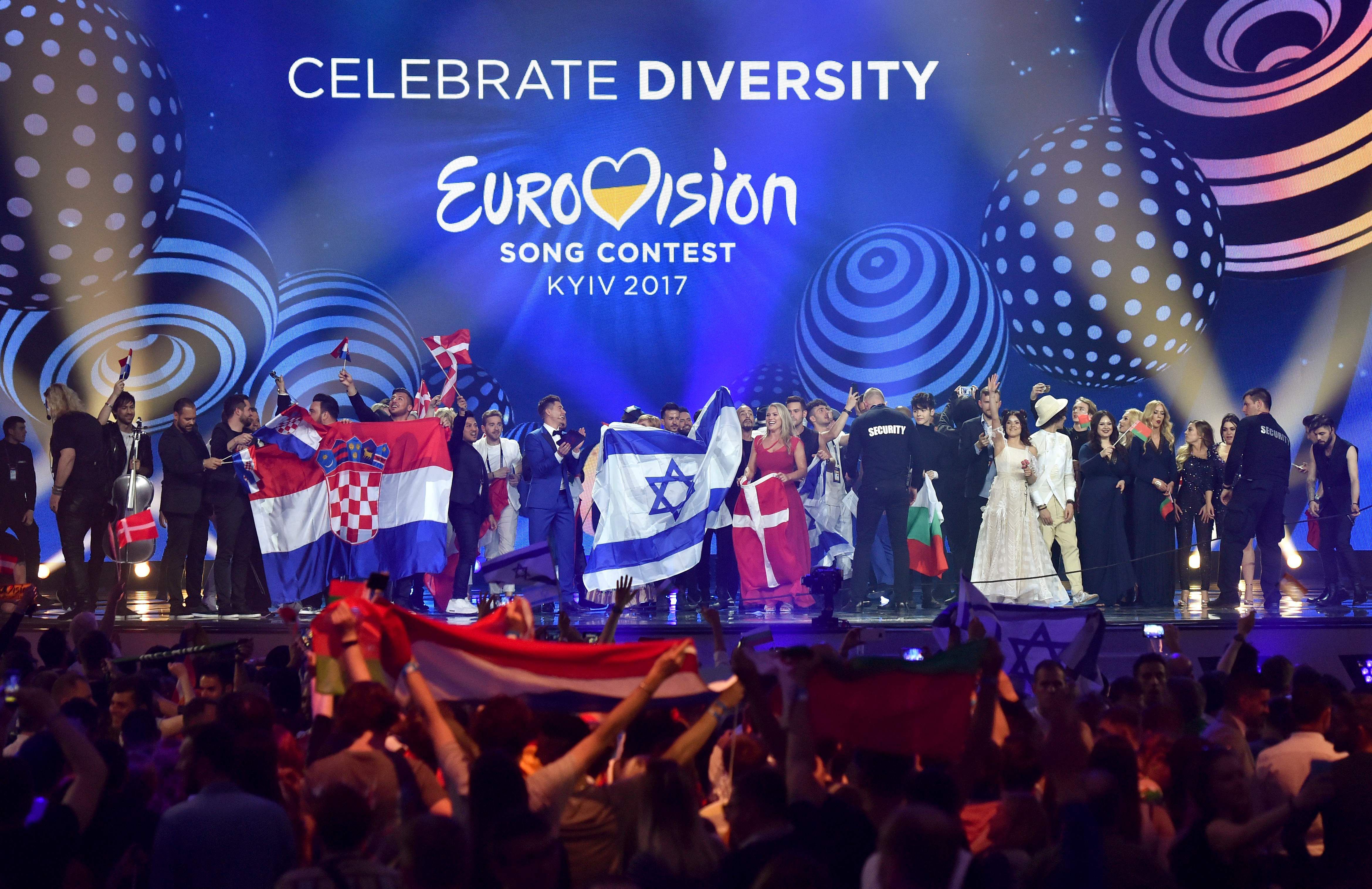It is Europe's kitschiest event, a continentwide musical contest in which sequinned women compete with trapeze actors, milkmaids churning butter on stage and drag queens, some of them bearded.
This year's 62nd Eurovision Song Contest is no exception: It features singers from Romania producing the yodelling sounds used by Swiss shepherds to call their herds, as well as a gender-bender crooner from the tiny state of Montenegro wearing a blue skirt and sporting a Beyonce-style ponytail.
Yet despite its evident silliness, Eurovision also carries a serious political message. This year's event takes place tonight in Kiev, the capital of war-torn Ukraine. Russia has been banned because of its alleged involvement in Ukraine's territorial dismemberment. And while the show is ostensibly only about music, there are predictions that, with Brexit looming, the British entry will suffer.
Technically, Eurovision has nothing to do with the European Union; it was created in 1956, one year before the EU was founded, by a small group of western European broadcasters. But in all other respects, Eurovision has come to be associated with the EU idea because it conveys the same message - of a continent in which national borders are irrelevant, all cultures are respected, any country regardless of its size has an equal chance of winning, and art remains separate from politics.
Audiences at Eurovision contests enthusiastically wave EU flags, and the European Commission, the bloc's executive body, funded the publication of the competition's official history - "As one of the cultural media that most connects Europeans, popular music has always been intertwined with cultural, economic, political and social change across Europe," says the author, Austrian academic Dean Vuletic.
As often in Europe, realities were slightly different. For the first three decades of its existence, the borderless Europe that Eurovision was meant to represent remained very much divided - the East Europeans under Soviet control were nowhere to be seen.

Equality between states does not go very far either: While most nations have to compete in the semi-finals and face elimination from the finals if they do not get enough votes, France, Germany, Italy, Spain and Britain are always guaranteed a place because, well, they are bigger than the others.
And then, there is the politics. During the 1960s, the military dictatorships in Spain and Portugal used their contest entries to fashion a more benign, moderate image. The East Europeans became avid participants in the 1990s because the contest signified their return to Europe. And Azerbaijan, a Muslim former Soviet republic, spent a fortune to build a concert hall to host Eurovision; it was its way of claiming to be part of Europe.
More amusingly, Australia has muscled into the competition, initially citing the show's popularity Down Under, but now on a more permanent basis. Privately, Australians point out they have more people of European origin than many European nations, an argument that runs against decades of Australian claims to belong in Asia. But then, there is also Israel, which is not in Europe, yet has long competed in Eurovision for similar reasons.
But while in the past, a mere appearance at Eurovision was a political message, now the choice of songs and the performers have become more overtly political.
After Russian troops invaded Georgia in 2008, the Georgian entry was a song entitled We Don't Wanna Put In, a dig at President Vladimir Putin. And Ukraine is the host tonight because it won last year with a song entitled 1944, a reference to the deportation of Ukrainian citizens under Soviet dictator Josef Stalin that year.
Russia retaliated by sending singer Yuliya Samoylova, who uses a wheelchair, as its representative. But the Ukrainian authorities banned Samoylova because she also performed in areas of Ukraine now under Russian military control. In private, Eurovision organisers are appalled by this tit-for-tat confrontation. But they seem powerless to prevent it.
Still, the contest remains hugely popular: It has 40 participant nations this year, and will be watched by about 200 million TV viewers. And, mercifully, the bookies' favourites are politically uncontroversial. They include a Portuguese crooner with a syrupy song entitled Love For Both Of Us, and an Italian singer accompanied by a dancer in a gorilla suit.
All very Eurovision.
